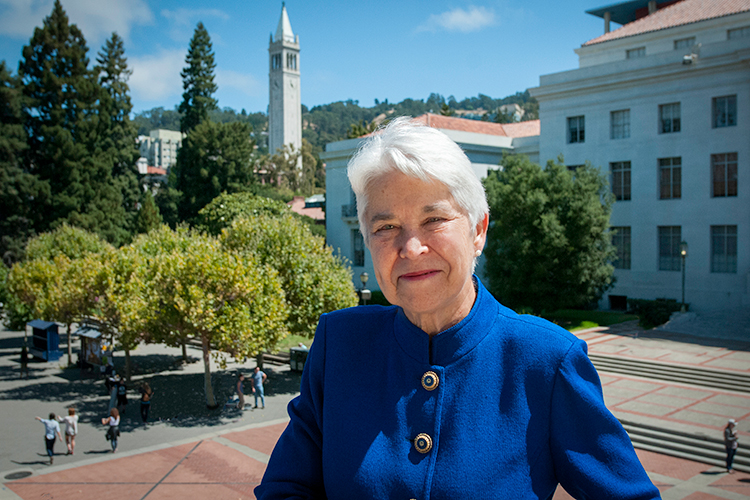Chancellor Christ: ‘We aspire to a culture of belonging’
'At a time when othering so dominates our national discourse, we aspire to a culture of belonging,' Chancellor Carol Christ says

September 9, 2019
Chancellor Carol Christ sent the following message to students on Monday, Sept. 9, 2019:
Dear Students,
As the year begins, I write to remind us of our responsibilities to each other as members of the Berkeley community.
Throughout the summer I have been reflecting about the angry, polarized political times in which we live. Every day the news carries stories of racism, of hostility to immigrants, of multiple forms of prejudice. They test our moral nature and coarsen our discourse. Sadly our campus is not immune to the toxic climate we see around us, a climate that challenges our Principles of Community and our long-standing commitment to inclusion and diversity.

Denise Herd, professor of public health, is coordinating Berkeley’s year-long initiative with the Haas Institute for a Fair and Inclusive Society. (School of Public Health photo)
On August 30th, Berkeley held a symposium initiating a year-long project, marking the 400th anniversary of the arrival of the first African slaves to North America. Professor Denise Herd, the lead organizer of the project, began the event by quoting William Faulkner: “The past is never dead. It’s not even past.” In that day’s symposium, and in the many events that will follow this academic year, we will have the opportunity to reflect on the way in which slavery has shaped the hurtful world of racial division we inhabit today. We must also explore and seek to understand other histories that have left their tragic mark on our current society—the taking of Native American land and the slaughter of so many tribes, repeated persecution of immigrant groups, acts of prejudice and discrimination against Hispanics, against Jews, against Muslims, against the disabled, against LGBTQ-identified individuals.

Read more stories about UC Berkeley’s observance of the 400th anniversary of the arrival of enslaved Africans to the English colonies.
Professor john a. powell ended the 400th anniversary symposium with a talk entitled “From Slavery to Belonging.” He argued that the opposite of “othering”—treating people as intrinsically different and alien—is not sameness but belonging, a concept that he believes to be of a higher order than inclusivity. In his words, it is “a vision of a large we or many wes to come together to make it this large we. It extends to people who may not look like you, to people who may not talk like you, to people who may not worship like you or don’t worship at all. But it claims and it demands that we recognize despite our differences, our shared humanity.”
At a time when othering so dominates our national discourse, we aspire to a culture of belonging—in the space we give each other’s speech, even speech with which we disagree, in the respect we show to each other, in our efforts to understand and learn from difference. We have work to do as a campus in becoming a fairer and more inclusive community. It is at the very heart of our educational mission.
Sincerely,
Carol Christ
Chancellor